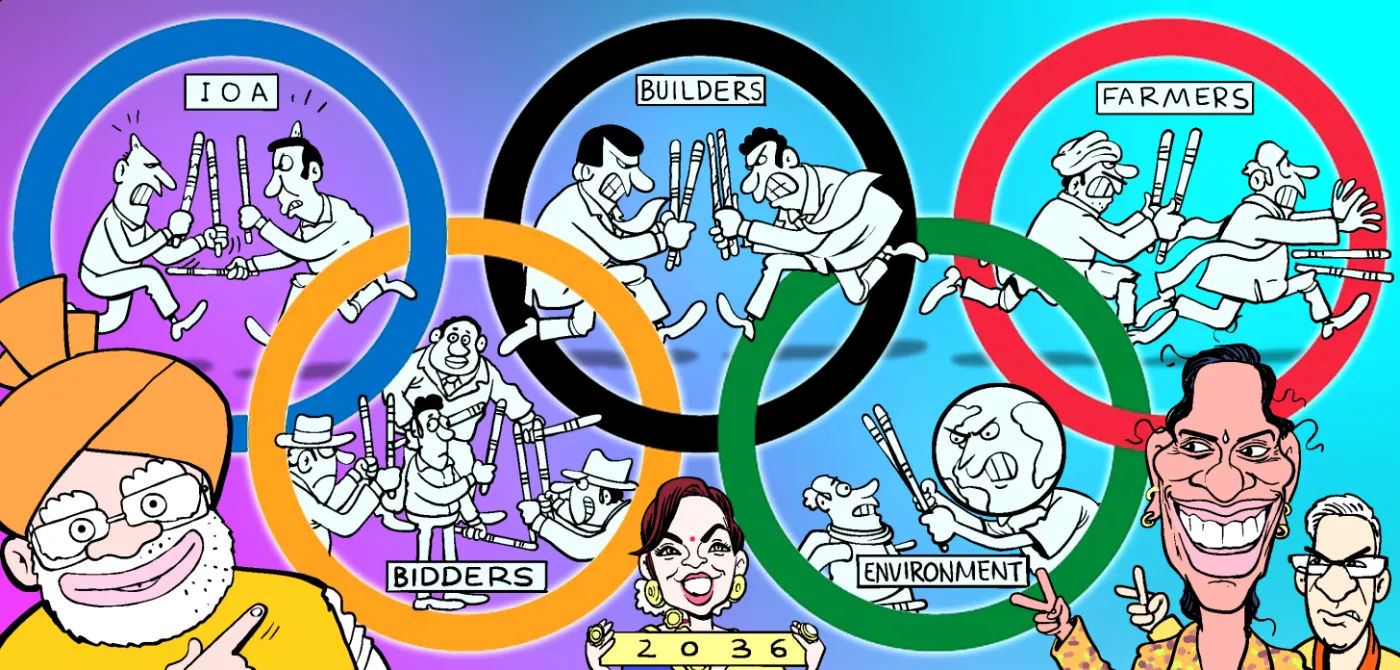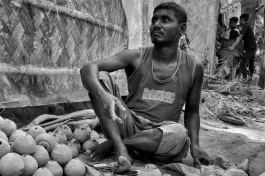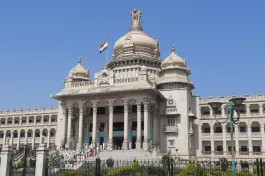If the bee’s knees of Ahmedabad – politicians, bureaucrats, real estate tycoons, building magnates and allied government beneficiaries – are to be believed, the bid to host the 2036 Olympics is a done deal. Ahmedabad-Gandhinagar 2036 it is.
If the Indian sports industry outside Gujarat is listened to, the message is, not so fast!
Not just for Ahmedabad-Gandhinagar but India2036 itself.
At the moment, nothing is a done deal and there is no consensus even on where exactly India must host these Games. There are possibilities outside of Ahmedabad-Gandhinagar that are being discussed in quiet tones as 2036 hosts: a cluster around the golden tourist triangle Delhi-Noida-Jaipur which already possesses existing sports infrastructure. Or other regional groupings. “We shouldn’t forget that two of the most important things in an Olympic Games are that the athlete experience and the fan experience has to be great […] travellers would want to come to Delhi-Agra-Jaipur and see various other things. I don’t know how that works for Ahmedabad-Gandhinagar-Baroda.” Another individual says, “It should be a multi-city Olympics, show the diversity of India.”
The International Olympic Committee (IOC) confirmed to me in mid-September over email that while they were “happy to see interest in hosting from India, with its huge passion for sport and youthful population” but “the IOC has not been informed by the IOA of any selected region.”
***
The IOA or the Indian Olympic Association, the umbrella body for Olympic sports in India, is the only organisation through which any proposed bid for 2036 by India goes through to the IOC. At the moment, the IOA itself is in turmoil, its familiar habit of faction fighting over positions and tenures playing out.
The latest ruckus that has spooked India’s Olympic pitch is related to the appointment of Raghuram Iyer as the IOA’s first professional (and salaried) CEO. His appointment in January 2024 sparked off a protest by 10 of 15 the IOA’s executive council members, who signed a letter declaring the CEO’s appointment “null and void” and named a parallel CEO. Iyer, it is being reported, is not allowed into the IOA’s office and has not been paid since his appointment.
Meaningfulness is far removed from the India Olympics project, which remains embarrassingly rooted in scale, extravagance, and political aggrandisement.
Yet, over the last nine months, the IOC has engaged with Iyer, including him on a programme for CEOs of prospective 2036 bidding National Olympic Committees in Paris. An IOC spokesperson confirmed, “the IOC has formally acknowledged the full results of the IOA elections which took place in December 2022 as well as the appointment of the CEO in January 2024 and does not have any further comments to make.”
Iyer’s continued presence on the IOC’s radar was made possible by an unexpected volte face at the very top of the IOA. When PT Usha was appointed IOA’s first woman president in December 2022, she was expected to be a rubber stamp, remote controlled by others on the Executive Council, including those closely linked to the BJP’s top leadership.The Executive Council includes joint secretary Kalyan Chaubey, a BJP member who is president of the All India Football Federation and who had functioned as ‘acting’ CEO of the IOA, and senior vice-president Ajay Patel, president of the Gujarat State Chess Association and chairman of Gujarat State Co-Operative Bank, said to be a confidant of Home Minister Amit Shah.
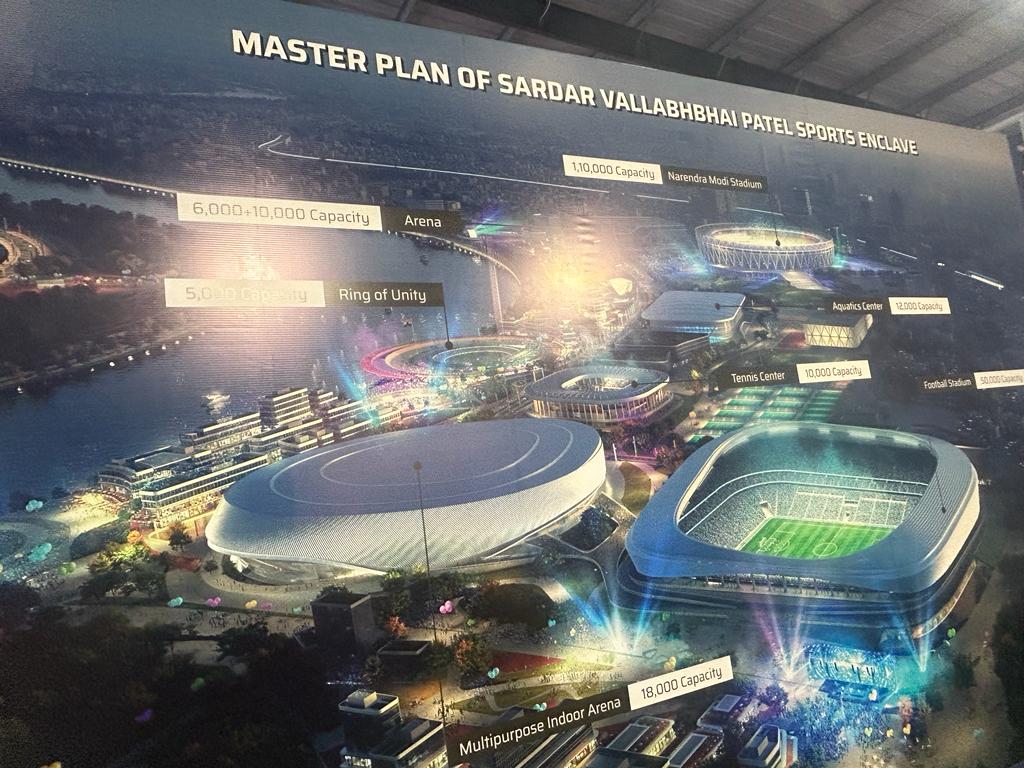
Except, Usha, to everyone’s astonishment, ‘went rogue’. Supported by a clutch of younger loyalists, she attached herself to the newest, shiniest wagon on the Indian sporting landscape: the one driven by IOC member Nita Ambani and powered by the influence of Reliance empire. A professional CEO was a demand by the IOC itself and featured in the amended IOA constitution.
The grim and silent tussle between the two camps to control power in the IOA now has entangled the 2036 bid. To believe that there is a unified, Indian effort behind a competitive bid to host the 2036 Olympics Games is pie in the sky.
Or, using a Gujarati reference, fafda on a flightpath.
***
The only thing certain around 2036 is that the Indian government is dead certain. After the 2021 Olympics, officials at the Ministry of Youth Affairs and Sport retorted to conversations around if we bid… with what is this ‘if we bid’? We will bid. It’s happening!
Prime Minister Narendra Modi endorsed these ambitions in his address to the IOC’s annual meeting in Mumbai in October 2023: “India will leave no stone unturned in our efforts to organise the Olympics in India in 2036. This is the age-old dream of 140 crore (1.4 billion) Indians, it is their aspiration.” Ever since, sports ministry officials scorn at those discussing the ifs over the whens. The PMO has said, it what more confirmation do you need?
They’re saying the Olympics has already come. There are people who have bought land and are looking at making a killing out of this whole thing. The common man doesn’t know there’s a bid or any bidding process.
The ‘where’, however, remains the question and around that lie wheels within wheels. The question of ‘what for’ has not even risen yet, despite what hosting an Olympic costs and whether organising mega games should be a priority for India.
Nandan Kamath, a Bangalore-based lawyer, argues the other India’s case eloquently in his book Boundary Lab: Inside the Global Experiment Called Sport:
India’s national sporting priorities do not necessarily have to remain in the realms of excellence, competition and performance alone. Using sport to improve the lives of one sixth of humanity is as worthwhile a quest as any […] Once we set up the social and institutional infrastructure that can deliver the benefits of sport and physical activity to all Indians, we may be able to meaningfully host the Olympic Games.
Meaningfulness is far removed from the India Olympics project, which remains embarrassingly rooted in scale, extravagance, and political aggrandisement.
Two events earlier this year serve as illustrations. On January 11, the Gujarat Olympic Planning and Infrastructure Corporation (GOLYMPIC) revealed its master plan for 2036 at the Vibrant Gujarat summit. (GOLYMPIC is the Gujarat government’s special purpose vehicle formed in late 2023 with a budget of Rs 6,000 crore of public money.) The plan included building a 350-acre sports complex around and inside Motera’s Sardar Vallabhhai Patel Sports Enclave, whose centrepiece is the Narendra Modi cricket stadium.
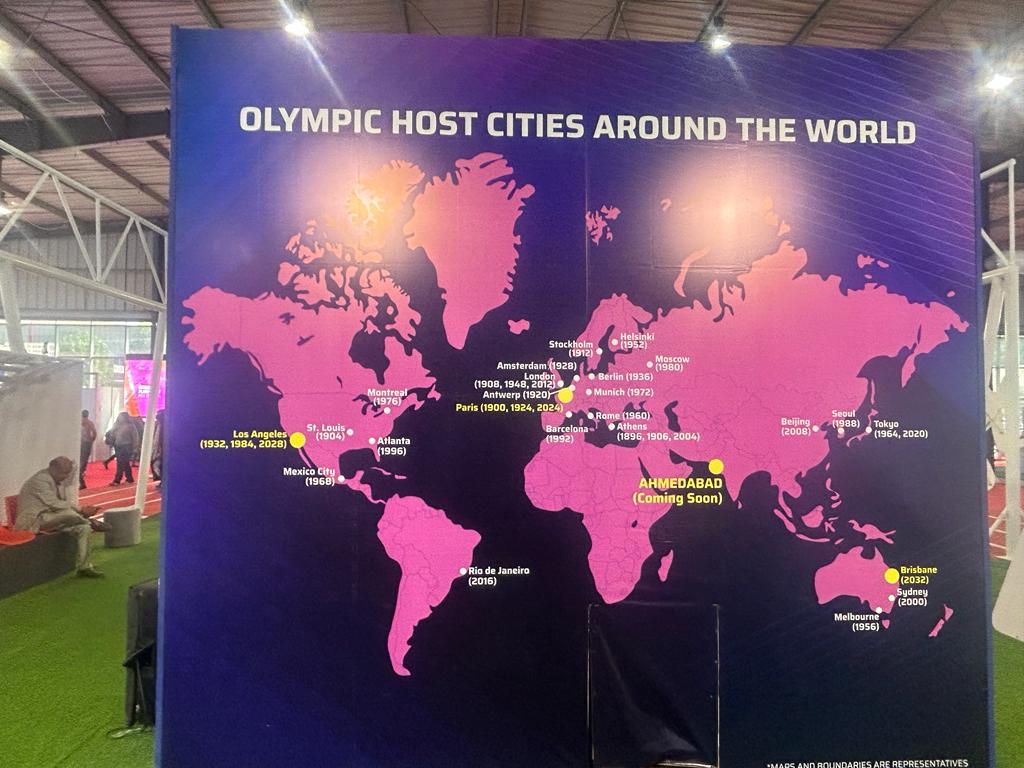
The IOC was quick to object to GOLYMPIC’s use of the fiercely trademarked and protected Olympic name and its logo. As alarms were raised, all references quickly disappeared in the media. The word Golympics has vanished and so has mention of the company, which is now referred to as either GOIPC or GOPAIL.
The large ‘GOLYMPICS’ sign, looming over the entrance of Sports of Authority of Gujarat in Gandhinagar – the organisation’s official address –hung on for a little longer, disappearing only this August.
(For our reference, the short form for GOLYMPICS’ new name used from here onwards will be GOIPC. GOPAIL only lends itself to rhyming jokes.)
***
A week after the masterplan reveal, the IOA and the central sports ministry entered into what the IOC terms as opening stage informal dialogues with possible host countries.
These dialogues are the first of three stages of discussions. The ‘informal’ exchange is followed by a ‘continuous’ set of dialogues. Closer to a final decision there is a ‘targeted’ dialogue.
The first two of India’s informal dialogues with the IOC contained a slide presentation which talked not about Ahmedabad-Gandhinagar, but India as a whole. The second of these exchanges highlighted familiar tropes of young India, digital India, vibrant India, growing India, ubercool middle-class India. No mention of Ahmedabad-Gandhinagar.
An individual present as part of the discussions told me that the-then sports minister Anurag Thakur informed the IOC that the region or host venue had not been finalised. Following the June 2024 general elections, Thakur was replaced as sports minister by Mansukh Mandavia, the MP from Porbander, Gujarat. There is no information available on a new series of dialogues. As of end September, the IOC has received no official communication about any particular venue.
Gujarat’s minimal contribution to excellence in sport or nurturing athletes or grassroots development is not an issue because the Olympics are being viewed through a very different lens: one trained on infrastructure, construction, and real estate.
“It’s high time people start talking about a city or a cluster of cities. How much of the India story can you keep repeating?” an individual who understands the bidding processes of mega events told me.
In the meantime, India’s 2036 rivals, also into informal dialogues with the IOC, have been more specific. Hungary has announced Budapest. Turkey has Istanbul. Indonesia wants its new capital Nusantara on the island of Borneo to have a spectacular debut party. Santiago’s successful hosting of the 2023 Pan American Games has been given an extra push by the Chilean president this August, confirming his country’s official bid. Egypt’s new administrative capital, being built since 2015, features an entire International Olympic City. Its 7,500 seater indoor stadium has already staged World Handball Championships matches in 2021, including a quarter-final, and World Shooting Championships rifle/ pistol events in 2022. Qatar’s Doha has come into the discussion and its hosting of the 2022 FIFA World Cup will be a tick mark in its favour.
That’s the competition against which India has chosen to remain vague.
***
In the minds of the Gujarati establishment, however, there is zero doubt. Gujarat’s minimal contribution to excellence in sport or nurturing athletes or grassroots development is not an issue because the Olympics are being viewed through a very different lens: one trained on infrastructure, construction, and real estate.
The profit industry around the show has not stopped moving over the last three years. A visitor to Ahmedabad today won’t hear people saying that the Olympics ‘might’ come to their city.” says a local. “They’re saying the Olympics has already come. There are people who have bought land and are looking at making a killing out of this whole thing. The common man doesn’t know there’s a bid or any bidding process.”
Detailed engineering and architectural plans are being drafted in a frenetic multi-agency race in what is not yet an official Olympic city, never mind a Games events venue. Four months after the Motera stadium was formally named after Narendra Modi in Feb 2021, the Ahmedabad Urban Development Authority invited proposals from consultants to present a ‘gap analysis’ around the existing infrastructure and suggest possible venues to stage Olympic events. Pricewaterhouse Coopers, who won the contract, suggested 22 suitable Olympic venues around Ahmedabad-Gandhinagar.
The land grab around Ahmedabad in anticipation of a construction boom of venues and games villages is completely antithetical to how the Olympics has wanted to project itself post-Covid.
A consortium of architecture companies led by the United Kingdom’s BDP (Building Design Partnership) has been appointed to produce engineering and architectural designs for the sports venues. Populous, an Australian sports architecture firm has been engaged for the GOIPC work around the 350 acres of the SVPS Enclave. The two firms are competing for the Olympic village project and other venues inside the Sardar Vallabhhai Patel Sports Enclave. People in the know say that construction will begin early next year.
There are more chunks of land – beyond those adjacent to the Sports Enclave – being gobbled up by a Games mission that is neither formalised, confirmed, nor announced. In July 2023, Populus marked eight areas close to Gandhinagar for sports infrastructure: large parts of Motera, Koteshwar, Bhat and the surrounding regions of Sughad, Chandkheda, Zundal and Koba.
West of Ahmedabad, there has been a large land acquisition drive in the rural area of Manipur-Godhavi. The quantity of land sought increased from 200 acres in June 2022 to between 500 and 1000 acres quoted this March. The Times of India has reported the government plans to build a sports, skills and knowledge corridor on 750 acres there. Farmers have protested the low prices paid to them for their land and sent a memorandum to the Ahmedabad district collector against forced acquisitions carried out by private bodies These protests have gone mostly unreported.
When I asked about the Gujarat government’s planning, infrastructure, and land acquisitions in the name of the 2036 bid, Ashwini Kumar, Gujarat’s principal secretary for sports, youth and cultural activities said they were not interacting with media at the moment, “Senior political leadership will be doing that at an appropriate time.” (Kumar is also one of the six directors of GOIPC.)
***
The land grab around Ahmedabad in anticipation of a construction boom of venues and games villages is completely antithetical to how the Olympics has wanted to project itself post-Covid.
“The IOC has a very clear policy that they don’t want the Olympics to be looked at as a white elephant,” a sports official told me. Paris 2024 has changed entrenched ideas about how an Olympic Games can be hosted, focussing on controlling costs, building no new infrastructure other than the athletes village and its Acquatic Centre and minimising the Games’ carbon footprint. If Los Angles can actually come through on their promise of a “no-car” 2028 Games, every successive host nation will have to show proof of following through talk of sustainability, covering environmentalism, inclusion, affordability and legacy.
Outside of land acquisition in Gujarat and a pink-walled India House in Paris, there appears to be no cogent plan for a 2036 Olympic bid from India.
The IOC’s conversations around responsible, sustainable, green games are the opposite of what is happening in Gujarat. Never mind athletic legacy, even weather-wise Gujarat is not ideal terrain for either training or competition in high performance sport that can justify building 1,000 acres of sports-related facilities.
There is also a rumbling about a construction war between Ambani’s Reliance Industries and their closest business rivals, the Gautam Adani group, over this landscape of Olympic-scale profits that lie in wait if Ahmedabad wins the bid. But what if it doesn’t? What happens to the constructions that are set in motion based on optimism alone? Who stands to gain?
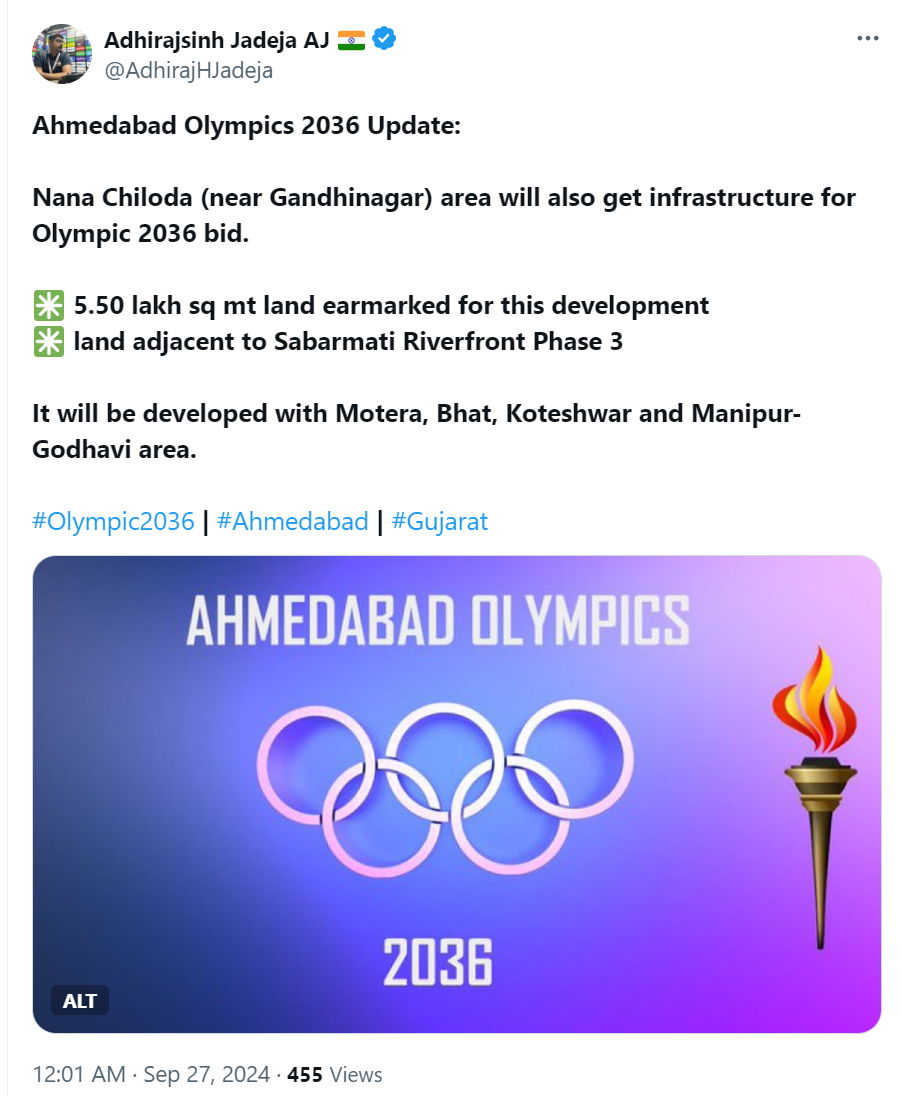
The answer might be gleaned from halfway across the world. At a recent Paralympics, an Indian visitor heard this post-Rio assessment from an Olympic volunteer: “Everything is shut now. Everybody just likes to build, do the event, do it really well and then they don’t care, because they made all their money.”
Sounds familiar?
***
A seasoned Olympic watcher reminded me that IOC president Thomas Bach is “one of the most political IOC presidents ever – every second day he is with a new head of state.”
To stay relevant and profitable, IOC is targeting three new markets: India due to its population, the Middle East due to wealth, and Africa as a springboard. The first post-pandemic Youth Olympics are scheduled for Senegal in 2026.
The IOC, the watcher predicts, “will go all out to lure India. Whether they give 2036 or not to India, that is immaterial. But they want to lure in India into this. That there is no turning back. Whether 2036 or whether 2040 we don’t know.” What could happen, “is they award India a Youth Olympic Games. Which is actually a good thing. Because frankly, India doesn't really know what to do at the moment. They are clueless.”
Harsh but true. Outside of land acquisition in Gujarat and a pink-walled India House in Paris, there appears to be no cogent plan for a 2036 Olympic bid from India. Leave aside identifying an energetic city mayor or the charismatic head of a smart, switched-on, top-quality bidding team, Indian Olympic sport is still searching for the team itself.
Sharda Ugra is an independent sports journalist based in Bengaluru.


